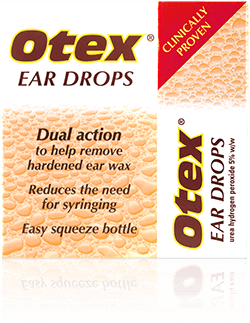3 ways hearing loss can impact your relationship
Anyone can suffer from hearing loss at any age, but it’s far more common in your later years. In fact, a whopping 50% of adults over 75 experience hearing loss, and 25% of people over 60 are suffering too2.
Hearing loss can be caused by a variety of things – from ear wax build up, to wear and tear over the years – but the signs and symptoms tend to manifest in similar ways. The first person to notice hearing loss is usually your significant other, as the dynamic between a couple can struggle due to communication issues. So, in many ways, changes to your relationship can be the first hearing loss symptom you notice.
Here are 3 ways hearing loss can impact a relationship, and how to address them to keep your connection loud and clear.
1. Anger and frustration
You may notice yourself or your partner becoming increasingly irritated, or an increase in arguments from misunderstandings or frustration. This can be triggered by hearing loss, as a partner may become frustrated by having to repeat themselves often, or having to repeat what others have said for their significant other. On top of this, partners may feel they’re not being listened to, and their significant other is deciding to tune out and ignore them. This is known as ‘selective hearing’ and can trigger fallouts between couples. But, in many cases, it’s simply undiagnosed hearing loss causing the friction. Without addressing this, bitterness and resentment can build in your own relationship.
2. Loss in companionship
Deep, meaningful connections with your partner can suffer if one, or both of you, are experiencing hearing loss. This is because the flow of your conversations can be disrupted, with partners interjecting or interrupting at inappropriate times, or partners struggling to hear or keep up with the flow of speech. Because of this, you may have less frequent and less meaningful discussions together – which doesn’t contribute to your bond. As such, you may not feel as connected and close to your partner.
3. Increase in loneliness and isolation
Hearing loss can make socialising in very noisy or loud environments extremely difficult. People suffering from hearing loss might be anxious about not hearing people or be embarrassed by asking for them to repeat themselves. So, they may withdraw from social situations, avoid going out, and end up missing out on lots of essential socialising both with and without their partners. This, paired with less meaningful conversation at home, can lead to feelings of loneliness and isolation.
What to do if you notice these things in your own relationship
There are a range of steps you can take to combat hearing loss from impacting your relationship. Firstly, if you suspect your partner is suffering from hearing loss which is impacting your connection, you should try and speak to them about it. Tell them that you’re worried about your relationship, and that you care about them and their health. Offer to go with them to get their hearing checked, and ensure you’re being supportive and accepting of their potential hearing loss. You can then work together to find solutions to help get you back on track.
If you think you’re suffering from hearing loss, start by telling your partner of your concerns. It will help them understand why you may not have been communicating as well as you used to, and you can work together to find a solution.
Identifying the cause
It’s a good idea to consider the cause of hearing loss. It can be triggered by a variety of things, but a very common cause is ear wax build up – which is very treatable. Impacted ear wax can dull your hearing and may also cause a ‘full’ feeling inside your ear.
You can try using over the counter ear drops to soften and break down blocked ear wax, such as Otex Express, which uses urea hydrogen peroxide to moisten and help remove hardened wax. The Otex Express Combi Pack has a useful bulb which helps you cleanse the ear after treatment, too, and can reduce the need for ear microsuction.
It’s important to note that you shouldn’t try and clean your ears with cotton buds, candles or camera devices with removal tools, available online (often called ‘otoscopes’) yourself. Traditional otoscopes are medical instruments used by a healthcare professional to shine a light into the ear for observation of the ear canal, not to remove ear wax. Using cotton buds, ear candles or camera devices with tools can worsen your ear wax build up by pushing wax in deeper and even risks damaging your delicate ears.
If your hearing loss isn’t improving with ear drops, or you’re experiencing further symptoms such as pain, dizziness or ringing sounds, then organise a trip to your GP.
On a closing note, it’s also important to remember that hearing loss isn’t anything to be ashamed of, and you should feel comfortable telling your partner if you, or them, seem to be suffering with dulled hearing. Together, you can find a solution to clear up your/their hearing and rebuild your connection.
Sources:
Browse the Otex range
Find the right product for you.





